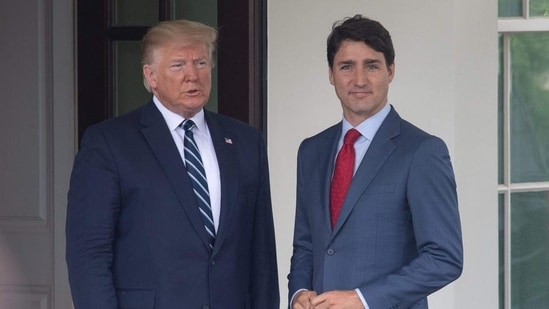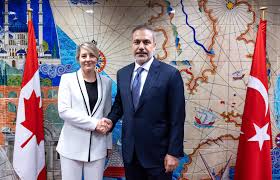The Political Landscape: Trudeau and Trump Relations

Introduction
The relationship between Canadian Prime Minister Justin Trudeau and former U.S. President Donald Trump has significantly impacted the geopolitical landscape of North America. Understanding the dynamics between these two leaders is crucial, as their policies and diplomatic approaches shape trade, climate change initiatives, and border security, which, in turn, affect millions of citizens in both countries.
Trudeau-Trump Relations: A Timeline
The relationship between Trudeau and Trump has been marked by both cooperation and contention. Trudeau’s principled stand on various issues often contrasted with Trump’s more unilateral and aggressive style. One major point of contention was the renegotiation of NAFTA, which Trump sought to replace with the USMCA (United States-Mexico-Canada Agreement). Trudeau worked diligently to secure provisions that protected Canadian industries, particularly in dairy and automotive sectors.
Moreover, Trump’s controversial stances, such as withdrawing from the Paris Agreement on climate change, created friction with Trudeau, who has made climate action a cornerstone of his governance. In 2016, Trudeau welcomed Trump’s election but was careful to navigate the delicate balance of Canadian sovereignty and American influence. However, the atmosphere shifted when Trump imposed tariffs on steel and aluminum imports, which led to further tensions between the two leaders.
Recent Developments and Future Implications
Following the conclusion of Trump’s presidency in early 2021, Trudeau has faced renewed challenges concerning U.S. relations. With President Joe Biden in office, Trudeau’s approach has shifted towards rebuilding partnerships, especially in light of shared interests like combating climate change and restoring multilateralism. However, the ongoing tensions regarding trade and environmental policies remain a hurdle. The U.S.-Canada border restrictions, initially imposed due to the COVID-19 pandemic, have begun easing, fostering economic recovery in both nations. Yet, the longer-term implications of Trump’s policies can still be felt:
- Continued trade disputes over lumber and agricultural products are likely to persist.
- Canada may need to adapt its foreign policy to align with Biden’s administration while managing nationalist sentiments arising from Trump’s base.
Conclusion
The dynamic between Trudeau and Trump, characterized by its complexities, highlights the broader context of Canada-U.S. relations. While Trump’s impact will continue to echo through Biden’s administration and beyond, Trudeau’s ability to navigate toward strengthening bilateral ties will be critical. As the contemporary political environment evolves, the decisions made by these leaders will have lasting implications for trade, environmental policies, and North American cooperation.








